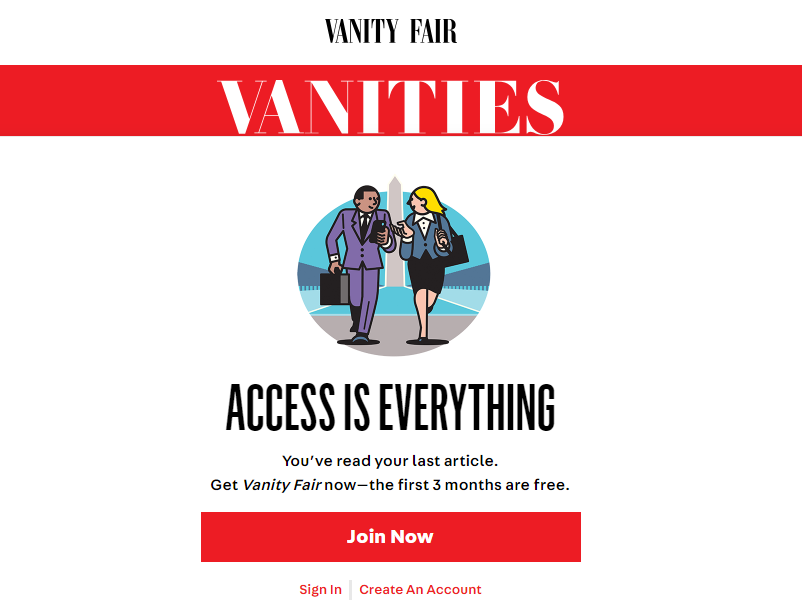
Magazine publisher Condé Nast has placed Vanity Fair’s online content behind a paywall in its latest move to monetise its digital offering.
Readers now require a paid subscription to access articles on the celebrity and entertainment magazine’s website, but can access four articles for free per month before the content is blocked.
In a letter to readers with the launch of the paywall on Tuesday, US editor Radhika Jones said: “It’s a move long in the making, driven by our desire to build our loyal digital audience into a true community.”
She also promised a commitment to “agenda setting journalism”, “in-depth reporting” and “breaking news”.
“At a moment when quality journalism is not a luxury, but a necessity, your commitment will enable us to invest in our reporting, writing, photography and video, expanding into new areas and onto new platforms, with you, our core reader and viewer, clearly in focus.”
The paywall is currently priced at a yearly fee of $19.99, which includes the monthly print edition, a subscriber newsletter, and access to the digital edition, website and archives. The first three months are currently free.
Vanity Fair has a cover price of £4.90 in the UK, where it has an average monthly circulation of 72,038 copies. According to new audience measurement service Pamco, Vanity Fair has a total brand reach of 1.2m.
Condé Nast also owns GQ, Wired, Tatler and Vogue in the UK.
Several Condé Nast titles are already using paywalls, including Wired and the New Yorker. Executives have hinted that other titles may follow suit as they look to replace diminishing add revenues.
In comments to Digiday, Condé Nast’s chief digital officer Fred Santarpia said: “I think [more paywalls for Condé Nast titles] are highly likely. We believe much of what we do at Condé Nast is highly differentiated and worth paying for in different models.
“I think the ‘pivot to paywalls’ is coming back because there is a resurgence in the value attributed to quality journalism.”
Email pged@pressgazette.co.uk to point out mistakes, provide story tips or send in a letter for publication on our "Letters Page" blog
